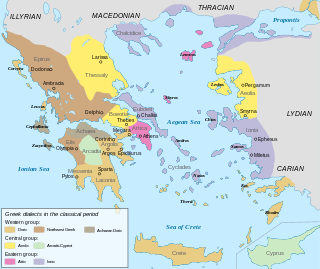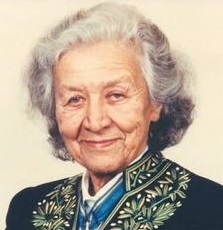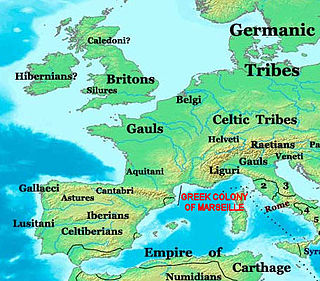External links
| Schools | ||
|---|---|---|
| Locations | ||
| People |
| |
| Student life | ||
| Predecessors (chronologically) | ||
| Related | ||
| | This article about a book on Classical studies is a stub. You can help Wikipedia by expanding it. |
The Martin Classical Lectures is a function of the Charles Beebe Martin Foundation established at Oberlin College in Ohio.
Charles Beebe Martin was a professor of Classics and classical archaeology at the College from 1880 to 1925. The foundation was set up to honor his memory.
Lectures given at the foundation are collected and presented in volumes. Dates given are those of publication.

Classics or classical studies is the study of classical antiquity. In the Western world, classics traditionally refers to the study of Classical Greek and Roman literature and their related original languages, Ancient Greek and Latin. Classics also includes Greco-Roman philosophy, history, archaeology, anthropology, art, mythology and society as secondary subjects.
Greek literature dates back from the ancient Greek literature, beginning in 800 BC, to the modern Greek literature of today.

Ancient Greece was a northeastern Mediterranean civilization, existing from the Greek Dark Ages of the 12th–9th centuries BC to the end of classical antiquity, that comprised a loose collection of culturally and linguistically related city-states and other territories. Most of these regions were officially unified only once, for 13 years, under Alexander the Great's empire from 336 to 323 BC. In Western history, the era of classical antiquity was immediately followed by the Early Middle Ages and the Byzantine period.

Attic Greek is the Greek dialect of the ancient region of Attica, including the polis of Athens. Often called classical Greek, it was the prestige dialect of the Greek world for centuries and remains the standard form of the language that is taught to students of ancient Greek. As the basis of the Hellenistic Koine, it is the most similar of the ancient dialects to later Greek. Attic is traditionally classified as a member or sister dialect of the Ionic branch.
Gisela Marie Augusta Richter was a classical archaeologist and art historian. She was a prominent figure and an authority in her field.

Donald Kagan was a Lithuanian-born American historian and classicist at Yale University specializing in ancient Greece. He formerly taught in the Department of History at Cornell University. Kagan was considered among the foremost American scholars of Greek history and is notable for his four-volume history of the Peloponnesian War.

Ancient Greek literature is literature written in the Ancient Greek language from the earliest texts until the time of the Byzantine Empire. The earliest surviving works of ancient Greek literature, dating back to the early Archaic period, are the two epic poems the Iliad and the Odyssey, set in an idealized archaic past today identified as having some relation to the Mycenaean era. These two epics, along with the Homeric Hymns and the two poems of Hesiod, Theogony and Works and Days, constituted the major foundations of the Greek literary tradition that would continue into the Classical, Hellenistic, and Roman periods.

Jacqueline Worms de Romilly was a French philologist, classical scholar and fiction writer. She was the first woman nominated to the Collège de France, and in 1988, the second woman to enter the Académie française.
Robert John Hopper, FSA was an archaeologist and historian of Ancient Greece. He was Professor of Ancient History at the University of Sheffield. He was Dean of the university's Faculty of Arts from 1967 to 1970.
Simon Hornblower, FBA is an English classicist and academic. He is Professor of Classics and Ancient History in the University of Oxford and senior research fellow of All Souls College, Oxford.
Charles Theodore Seltman PhD was an English art historian and writer particularly in the area of numismatics.
Hellenic studies is an interdisciplinary scholarly field that focuses on the language, literature, history and politics of post-classical Greece. In university, a wide range of courses expose students to viewpoints that help them understand the historical and political experiences of Byzantine, Ottoman and modern Greece; the ways in which Greece has borne its several pasts and translated them into the modern era; and the era's distinguished literary and artistic traditions.

The following outline is provided as an overview of and topical guide to ancient Greece:

Cranii or Kranioi or Krane was a Greek city on the island of Cephallenia, situated at the head of a bay on the western coast. Thucydides writes extensively about Cranii in his History of the Peloponnesian War. In 431 BCE, it joined the Athenian alliance, together with the other Cephallenian towns; in consequence of which the Corinthians made a descent upon the territory of Cranii, but were repulsed with loss. In 421 BCE the Athenians settled at Cranii helot deserters of Sparta and the Messenians who were withdrawn from Pylos on the surrender of that fortress to the Lacedaemonians. As part of the negotiations with Sparta after the "50 Years Truce" was signed, these people were moved from their garrison at Pylos where they were involved in a blockade of the troops on the island in the bay of Pylos. They were relieved by Athenian troops who then garrisoned the bay. Cranii surrendered to the Romans without resistance in 189 BCE. It is mentioned both by Strabo and Pliny the Elder.

The Greeks in pre-Roman Gaul have a significant history of settlement, trade, cultural influence, and armed conflict in the Celtic territory of Gaul, starting from the 6th century BC during the Greek Archaic period. Following the founding of the major trading post of Massalia in 600 BC by the Phocaeans at present day Marseille, Massalians had a complex history of interaction with peoples of the region. Large Greek colonies also existed west of the Rhône, particularly at Agde and Béziers, the latter of which both predates, and was larger than, the Marseille colony.

This bibliography of Greece is a list of books in the English language which reliable sources indicate relate to the general topic of Greece.

Christiane Sourvinou-Inwood was a scholar in the field of Ancient Greek religion and a highly influential Hellenist.
Brian A. Sparkes is a British Classical Archaeologist and Art Historian, specialising in the art of Ancient Greece. For most of his academic career, he has been based at The University of Southampton, where he was Professor of Classical Archaeology, and helped to found the Department of Archaeology.

Michael Scott is a British classical scholar, ancient historian, and presenter. He is professor of classics and ancient history at the University of Warwick.

Fiona McHardy is a Professor of Classics and also the Head of History and Classics in the School of Humanities and Social Sciences at the University of Roehampton. In 2003 she started work at Roehampton where she was responsible for building up the BA Classical Civilisation. Her research interests include ancient and modern Greek literature, folk poetry, anthropology and culture. She teaches modules on ancient Greek language, literature and culture.